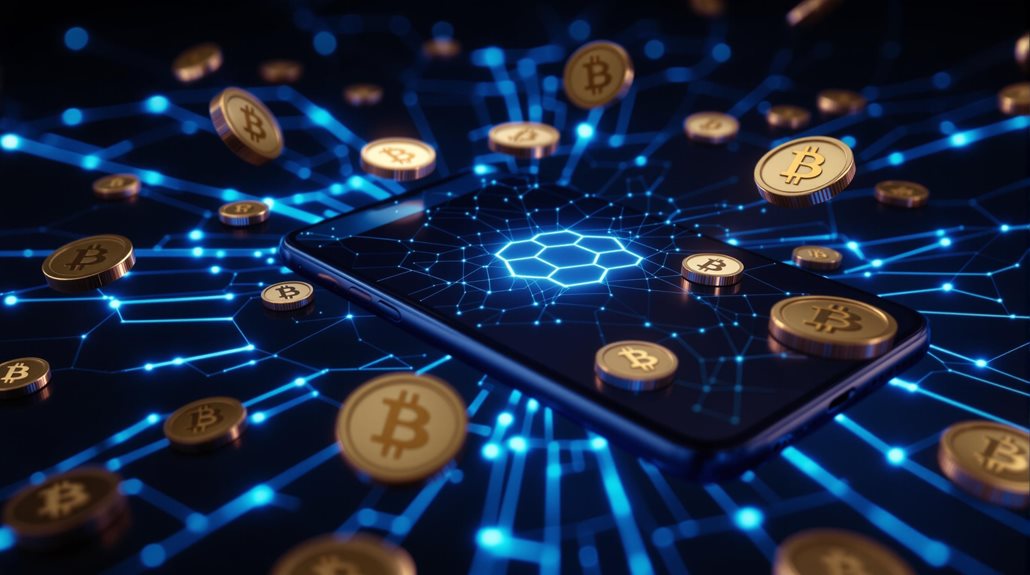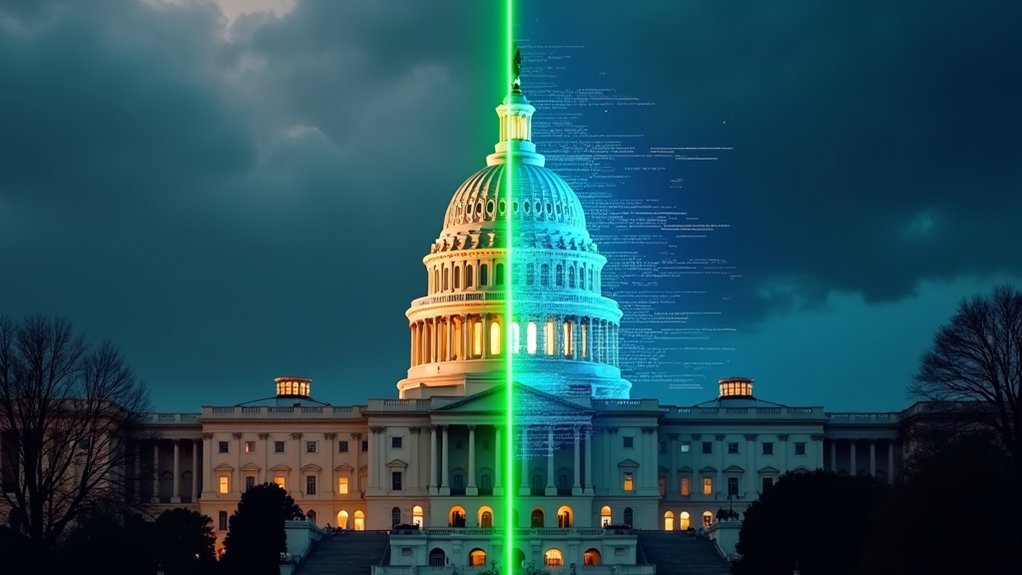A decentralized wallet is a digital tool that gives users complete control over their cryptocurrency without banks or middlemen. It’s like a banking app but works directly on peer-to-peer networks. These wallets come in different forms – desktop programs, mobile apps, or physical devices. Users manage their own private keys, which means better security and privacy but also more responsibility. Understanding how these wallets work is key to safely managing digital assets.
Quick Overview
- A decentralized wallet is a software application that lets users directly control and manage their cryptocurrencies without intermediaries like banks.
- Users maintain complete control of their private keys, which are essential credentials needed to access and transfer digital assets.
- These wallets operate on peer-to-peer networks and can be accessed through desktop computers, mobile phones, or specialized hardware devices.
- Unlike centralized exchanges, decentralized wallets give users full ownership of their crypto assets with enhanced privacy and security.
- Users must securely store their private keys and seed phrases, as losing them means permanent loss of access to funds.

A decentralized wallet is a software application that lets users store and manage their cryptocurrencies without relying on a bank or financial institution. These wallets operate on peer-to-peer networks and give users complete control over their private keys, which are crucial for accessing and managing their digital assets. Transaction verification happens automatically when users initiate transfers, ensuring security and authenticity.
Unlike traditional banking apps, decentralized wallets come in different forms. Desktop wallets are programs that run on computers, while mobile wallets are apps that work on smartphones. There’s also a physical option called hardware wallets, which store keys offline for extra security. The main types are non-custodial wallets, where users maintain control of their private keys, and custodial wallets, where a service provider holds the keys. These wallets are built on smart contracts that ensure transparency and automated operations.
One of the biggest advantages of decentralized wallets is their enhanced security features. Since users have direct control over their private keys, there’s no need to trust a third party with their funds. These wallets also offer more privacy because transactions happen directly between users. They’re typically open-source and available to anyone with an internet connection, making them highly accessible to people worldwide. Unlike cryptocurrency exchanges, these wallets provide users with full asset control for maximum security.
The cost benefits of using decentralized wallets are significant. With fewer intermediaries involved, transaction fees are usually lower than traditional banking services. Users don’t need permission from any central authority to make transactions, giving them more freedom with their money. However, this independence comes with important responsibilities.
There are some risks that users should be aware of when using decentralized wallets. The most serious risk is losing private keys, which means permanently losing access to funds. These wallets can also be complex to use, especially for people who aren’t familiar with cryptocurrency technology. Users need to watch out for phishing attacks and other security threats. Using a seed phrase backup system is essential for recovering access to your wallet if something goes wrong.
Another consideration is that decentralized wallets don’t typically offer customer support services. If something goes wrong, users are usually on their own to solve the problem. They also can’t directly handle traditional money – users need to convert their cryptocurrency to regular currency through separate exchanges.
These wallets require an internet connection to access the blockchain and make transactions. They’re designed for people who want to have complete control over their digital assets and don’t mind taking on the responsibility of managing their own security.
As cryptocurrency becomes more common, these wallets continue to play a significant role in how people store and manage their digital money.
Frequently Asked Questions
How Secure Are Decentralized Wallets Compared to Traditional Banking Systems?
Both decentralized wallets and traditional banks have different security strengths.
Decentralized wallets let users control their private keys and don’t have a central point for hackers to target. However, they’re vulnerable to user errors and smart contract bugs.
Traditional banks offer FDIC insurance and fraud protection but face regular cyber attacks on their centralized systems.
In 2022, the finance sector saw 566 data breaches, with each breach costing around $5.9 million.
Can I Recover My Crypto if I Lose My Seed Phrase?
If someone loses their seed phrase, recovering their crypto is nearly impossible.
There’s no “forgot password” button or customer service to help. The seed phrase is like a master key – once it’s gone, there’s no way back in.
While some recovery services exist, they’re expensive and don’t guarantee success.
That’s why the crypto community often says “not your keys, not your crypto” to emphasize the importance of protecting seed phrases.
Which Decentralized Wallet Has the Lowest Transaction Fees?
Among popular decentralized wallets, MEXC offers the lowest fees with 0% maker fees and 0.02% taker fees for spot trading.
It’s followed by OKX with 0.08% maker and 0.1% taker fees.
Binance, KuCoin, and Bitget all have 0.1% base trading fees, though they offer discounts when using their native tokens.
However, actual transaction costs can vary based on network congestion, blockchain used, and gas prices at the time.
Do Decentralized Wallets Work Offline Without Internet Connection?
Some decentralized wallets can work offline, but not all of them.
Cold wallets, like hardware devices, don’t need internet to store crypto or sign transactions. They’re specifically designed for offline use.
Hot wallets and mobile apps need internet to function.
While offline wallets can’t check balances or send transactions without eventually connecting to the internet, they can safely store crypto and prepare transactions that’ll be broadcast later when online.
Can Government Agencies Track Transactions Made Through Decentralized Wallets?
Yes, government agencies can track transactions made through decentralized wallets.
While these wallets don’t require personal information, the blockchain’s public ledger records all transactions.
Law enforcement uses tools like Chainalysis and wallet clustering to trace crypto movements.
When users connect their wallets to exchanges or use credit cards to buy crypto, it creates traceable links.
Even decentralized transactions leave digital footprints that investigators can follow.





